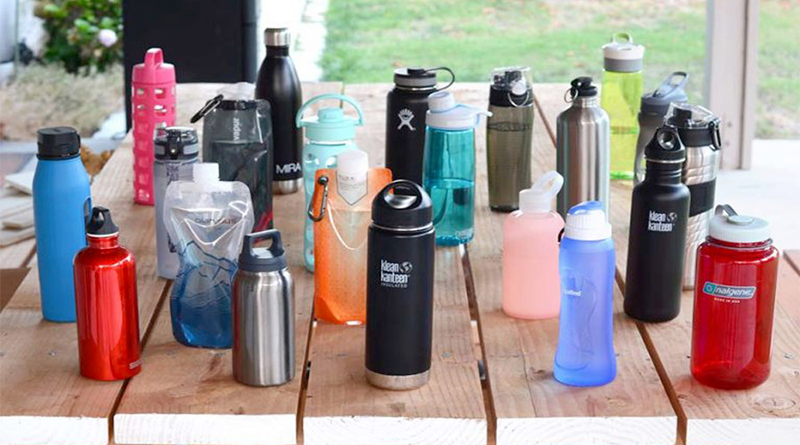Safety First: The Different Types of Reusable Water Bottles
Reusable water bottles are a real game-changer, and you’ll probably realize it too once you ditch the disposable plastic ones you buy on daily basis. Wondering what made me transition to a reusable bottle? Well, the first reason was the calculation I made on how much I can spare by skipping the vending machine on my way to the gym.
On the other hand, as a person who loves and takes care of nature, I decided that it’s my call to stop using those non-biodegradable plastic bottles and contribute to a cleaner and healthier environment for everyone. I’m sure that you too have also had second thoughts about the “suspicious” plastic they use for manufacturing disposable water bottles at least once.
This is why I decided to dedicate this article to the different types of reusable water bottles and review the materials used for manufacturing them to help you make a better choice once you decide to make the switch.
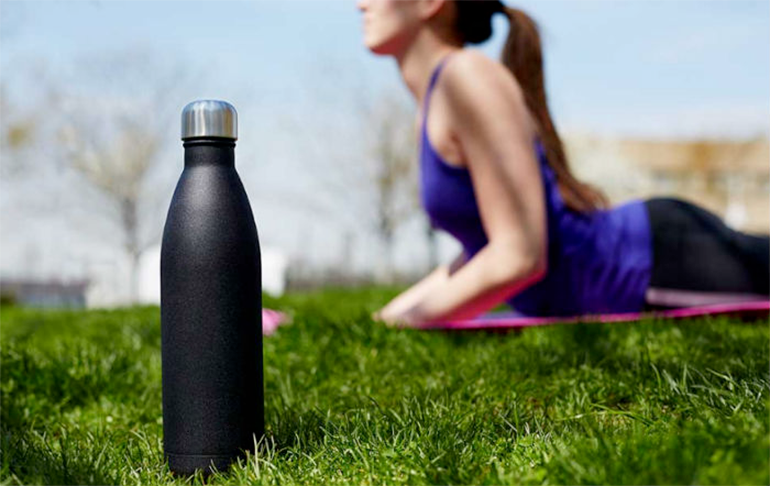
Stainless Steel Water Bottles
The first reusable water bottle I ever used was made of stainless steel. And I can give you more than just one reason to hit the market and explore the range of reusable stainless steel bottles.
First of all, stainless steel is a material that has natural antibacterial properties. More specifically, stainless steel doesn’t feature any pores that can be easily penetrated by nasty germs and bacteria that can contaminate your water. This is why actually stainless steel is most commonly used in manufacturing kitchenware for both, residential and commercial applications.
Talking about safety, reusable stainless steel bottles are BPA and BPS free, and unlike disposable plastic bottles, they’re recyclable and way healthier and safer. In addition to this, a reusable stainless steel bottle won’t shatter, break or crack when accidentally dropped, which makes for the healthiest and the safest variant for your kids too.
Stainless steel drink bottles also don’t absorb any odours or colours that will discourage you to take your daily dose of water wherever you are. And once you reach your home, feel free to “toss” it in your dishwasher, and you’ll have it ready for the next day.
Finally, drinking your daily dose of water from a reusable stainless steel bottle can be very fun. These bottles come in a bunch of different designs- from the sleek silver bottles to the ones featuring interesting pops of colours and patterns. You can even get a couple of different bottles and match them with your outfits.
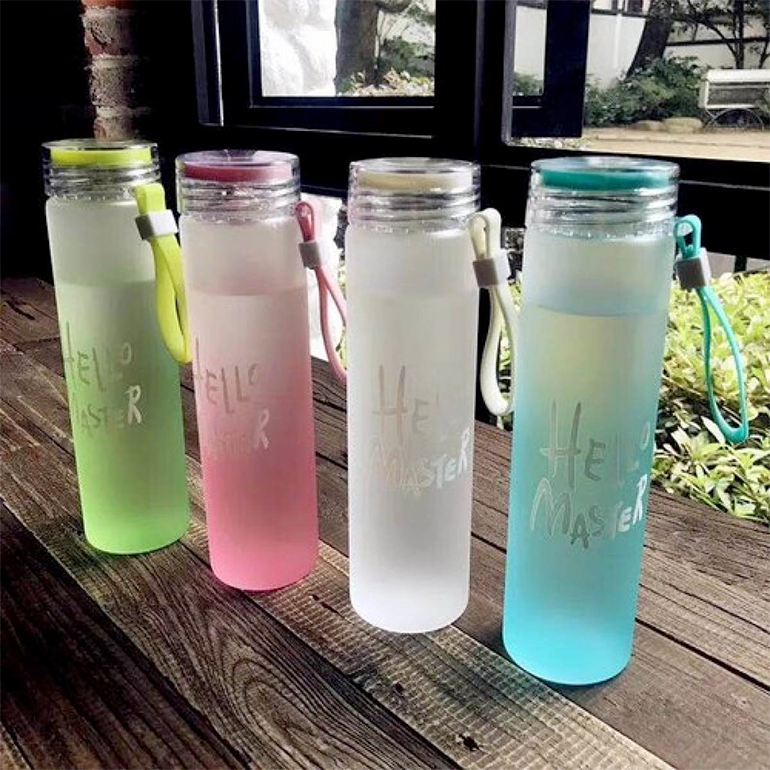
Glass Water Bottles
My glass water bottle is definitely my favourite in my reusable bottles collection. Not only does it hold up great, but I also love the see-through sleek look and the crisp taste it gives to my water.
On the other side, glass also makes for a safe and healthy material since it’s 100% recyclable and won’t leak any dangerous BPA and BPS substances into your water. It’s also dishwasher safe, even though many manufacturers recommend hand washing it since glass can break when exposed at high temperatures.
However, be careful when handling a glass bottle, since they tend to be very heavy and fragile. They’re very easy to break, and this is why I don’t recommend them for kids and avoid bringing one to the gym to stay away from any hazards. Also, accidentally spilling a couple of drops will make your glass bottle slippery, which can additionally contribute to dropping and destroying it.
Copper Water Bottles
If you’re the type of person that doesn’t pay attention to aesthetics, but you’re mainly concerned about the potential health benefits, copper water bottles can be the ideal option for you.
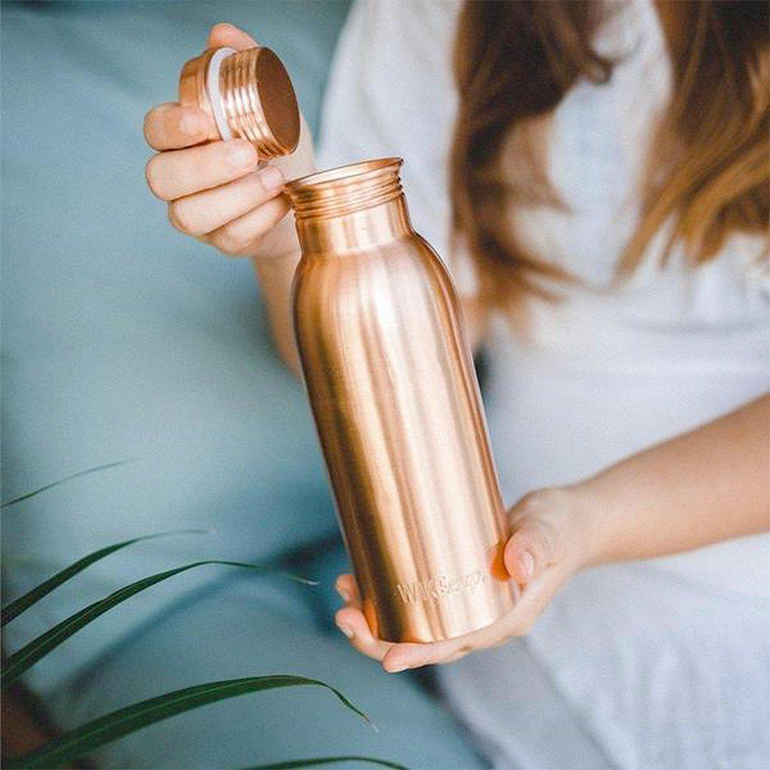
First of all, copper bottles have been shown as the best alternative for those who’re aiming for weight loss. This is due to the chemical compounds in copper materials being very helpful in breaking down your fatty tissues. On top of that, copper is also a naturally antimicrobial material, and storing water in a copper bottle for up to 16 hours at room temperature will actually infuse it with these properties.
But on the other hand, consuming water that is infused with copper compounds is not safe, since you can’t know how much copper does your water contain. This also means that reusable copper bottles will leave a metal after taste in your water, which doesn’t sound much appealing.
Even those these bottles are durable and non-breakable, experts don’t recommend them for kids exactly because of them not being the safest option.
Plastic Water Bottles
Even though doctors and experts recommend choosing stainless steel or glass bottles over plastic, this doesn’t mean that you should avoid it at all costs. The truth is that there’re a bunch of different types of plastic and not all of them are equally made.
I don’t deny, most of the plastic bottles contain BPA and BPS, the two very harmful chemicals used for manufacturing plastic that are likely to leach into your water. Also, even though plastic bottles are recyclable, the truth is that about 90% of the “recycled” plastic actually ends up in the oceans and landfills, which hurts the environment and puts in danger many species.
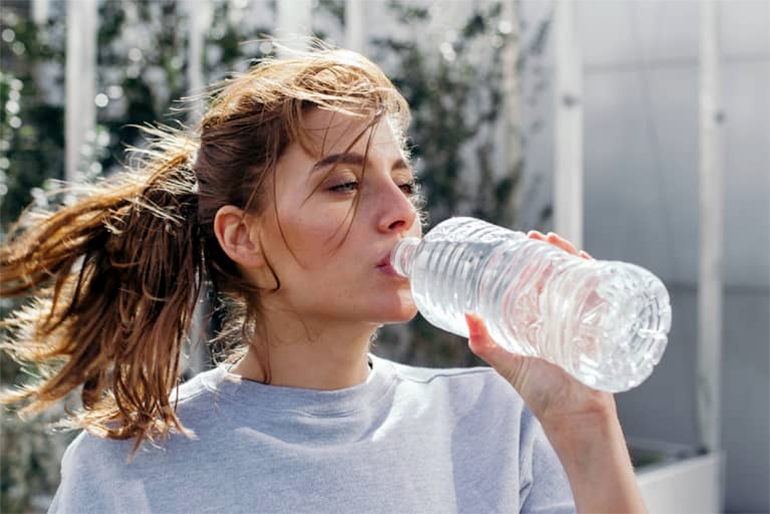
However, many manufacturers claim that they don’t use BPA in manufacturing reusable plastic bottles, which makes them somewhat safe for storing water. But on the other hand, this also means that BPA is replaced with other substances or chemicals, which haven’t really been studied and researched.
Long story short, even though reusable plastic bottles are very affordable, durable and lightweight, I don’t recommend them at all. Not only are they dangerous for your health, but they’re also bad for the environment, tend to retain odours and melt once you wash them at high temperature in your dishwasher.
Now that you know the benefits and different alternatives of reusable water bottles, don’t hesitate to hit the market to get yourself one, and see how it improves your daily habits.

